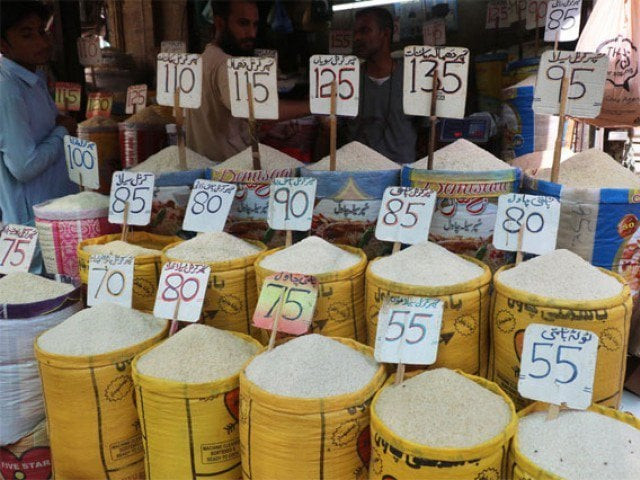'Provincial laws fail to stop price hike, hoarding'
Antitrust watchdog stresses need for upgrading, consolidating all provincial laws

Antitrust watchdog stresses need for upgrading, consolidating all provincial laws. PHOTO: FILE
The Competition Commission of Pakistan (CCP) has issued a policy note to the provincial governments weeks after sugar barons pocketed billions of rupees by increasing prices of sugar despite having surplus stock. Neither the federal nor the provincial governments dared to take any action against these barons.
All provincial laws need to be upgraded and consolidated, keeping in view the current conditions, under one law with clear responsibilities for implementation under a single authority, according to the policy note.
"We will never suggest fixing the price of any commodity. What we have suggested to the provinces is to have one uniform formula for the determination of prices," said Vadiyya Khalil, the CCP chairperson.
Inflation in recent months has skyrocketed, largely due to implications of currency devaluation that has affected everything, including pushing up the transportation cost of goods.
Section 29 of the CCP Act empowers the antitrust watchdog to review laws and policy frameworks and make recommendations to the federal and provincial governments. The CCP issued the policy note after existing price control laws of the provincial governments could not effectively check the price hike.
The Constitution binds the state to ensure the provision of food and basic necessities whereas the unchecked price hike is adversely affecting protein intake by a significant proportion of the population.
A 2015 report of the CCP, which became the base for the policy note, proposed that a uniform formula for fixing a range of prices should be adopted. This will discourage traders from diverting and hoarding supplies at places where better prices are offered.
In the implementation of laws, it has been noticed that in every district, a slightly different mechanism is applied vis-à-vis controlling prices of essential commodities and ensuring availability ie bridging the demand-supply gap, according to the CCP.
The end result is that the consumers suffer be it in terms of higher prices or non-availability of foodstuff or essential commodity, in particular during Ramazan.
The CCP said the federal law also lacked a uniform mechanism for the implementation of rules and ensuring availability of essential commodities at fair prices to the general public.
Provincial governments are regulating prices through the Food Stuff Act, Agriculture Produce Markets Ordinance and Registration of Godowns Act. Khyber-Pakhtunkhwa and Balochistan governments have not yet enacted the godowns Act.
The foodstuff control laws determine prices, their regulation, and hoarding. Agriculture produce laws regulate the purchase and sale of agricultural outputs at the market level.
The CCP advised that a new consolidated single law in each province should provide for a uniform formula for price determination throughout the province. It added that this would discourage suppliers from hoarding and delivering supplies to places where better prices and margins were available.
But the CCP reiterated that price enforcement mechanisms should only be exercised in case of emergency or shortages and prices should be left with market forces.
Current price determination mechanisms were faulty as prices of essential commodities were determined on the basis of retail market prices, said the CCP chairperson.
Price control over essential commodities as well as foodstuff should be applied at the wholesale level, which could be monitored easily as compared to the vast retail sector, advised the CCP.
It added that instead of determining one price for a product, the provincial governments should give a price band for a product.
The CCP also recommended the setting up of supermarkets on the public-private partnership model to end the role of middlemen and give better returns to farmers. It has proposed a minimum support price for pulses aimed at promoting their cultivation that has been adversely affected due to the minimum support price guaranteed to sugarcane and wheat growers.
Pakistan meets its needs by importing pulses that are also subject to withholding taxes, gradually pushing it out of the reach of the poor.
The CCP also recommended the exclusion of hyper and supermarkets from the purview of price control laws aimed at protecting and encouraging foreign investment in these store chains.
The CCP said the cost of ensuring standards, cold storage facilities, and other incentives was higher, therefore, these supermarkets should be exempted from the price control laws.


1733130350-0/Untitled-design-(76)1733130350-0-208x130.webp)
















COMMENTS
Comments are moderated and generally will be posted if they are on-topic and not abusive.
For more information, please see our Comments FAQ